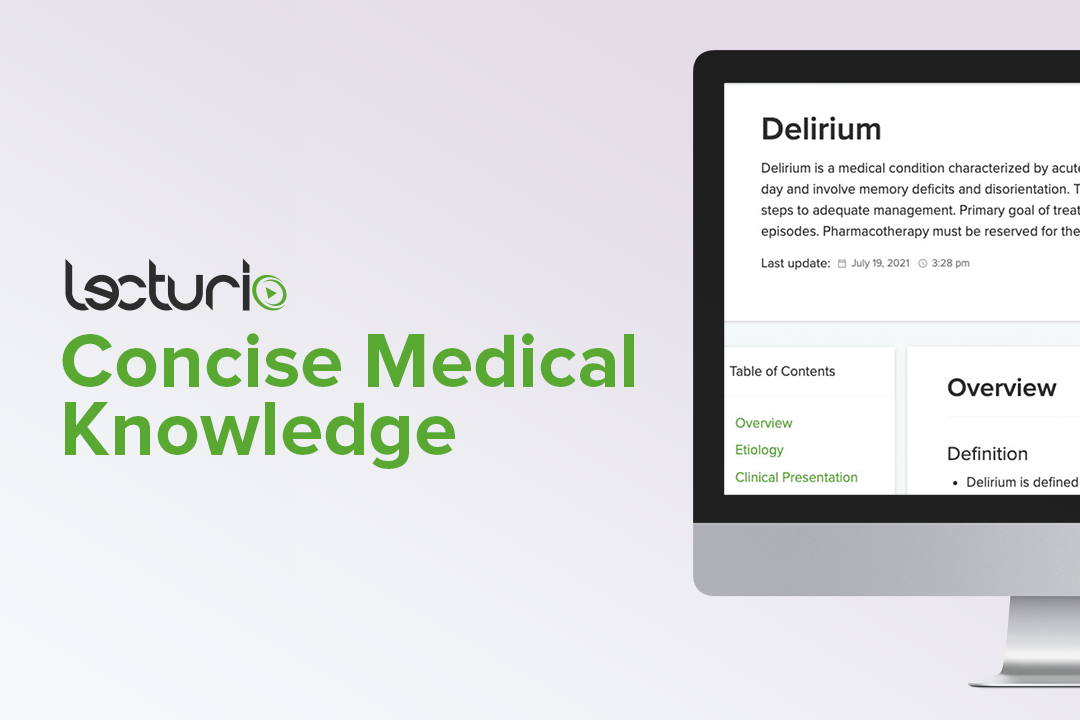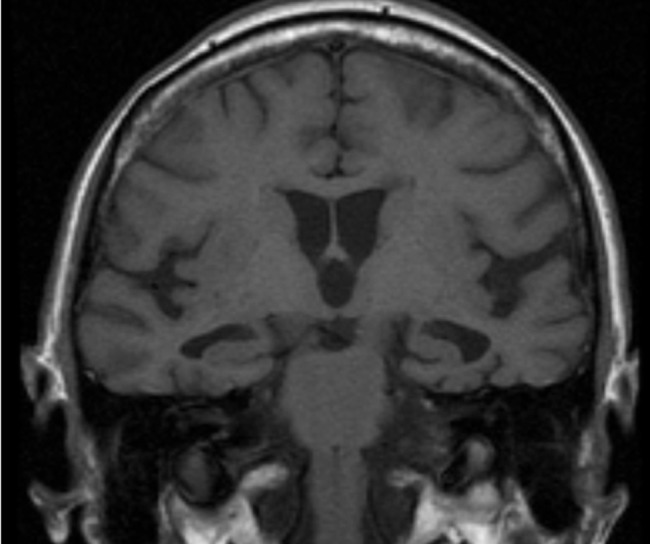Playlist
Show Playlist
Hide Playlist
Other Dementias and Delirium
-
Slides 02 AnomaliesAgingBrainAlzeheimerDementia Aging.pdf
-
Download Lecture Overview
00:01 We’ve covered Alzheimer’s and said that that’s about 60% of all dementias but what about the other 20 to 40%? Can you think of any other dementias? Let’s take a quick look at a number of different kinds. You don’t need to know them in as much detail as you need to understand Alzheimer’s but there are a number of different kinds of dementias. 00:30 Vascular dementia, this one pretty much makes sense because we have some kind of blockage whether it’s an acute stroke or a progressive blockage of a vessel. Decreased oxygen levels lend themselves to cells dying off and thus decrease synoptic connections and perhaps dementia developing. Another type is Lewy body dementia. This one you definitely need to be familiar with. We’ll talk about Lewy body specifically in a later lecture. 01:06 I will say though we don’t really understand how the Lewy bodies work. But again, it’s an aggregation of proteins, so broken protein structures causing this aggregation interrupting signaling. 01:20 We see Parkinson’s disease dementia. Now, Parkinson’s disease as we’ll learn in another lecture is predominantly a movement disorder. However, in the later stages, Parkinson’s will develop its own form of dementia which, you know, it’s going to look fairly like Alzheimer’s. 01:44 Then there’s a fourth kind of dementia that stands out there which is frontotemporal dementia that actually doesn’t really go any further than that. So we see symptoms associated with degradation of the frontal and temporal lobes. Again, you don’t need to know specific details of each of these. 02:02 Just be familiar that these are four other kinds of dementia that we see in addition to Alzheimer’s disease. 02:11 I want to bring this up because often in practice, you will see or maybe not often, but you’ll see patients come in that are acting as if they may have Alzheimer’s. You may be tempted to predict that they are affected by Alzheimer’s. But as it turns out, about 50% of older adult patients that make their way into the emergency room are experiencing some sort of episode of dementia. 02:43 But it’s episodic and we call that episodic dementia a delirium because it’s temporary, so it’s transient. 02:50 It turns out that we can incite, so to say, an Alzheimer’s-like condition with stressful situations. 03:00 Stressful situations, of course, anytime anyone ends up in a hospital especially the emergency room, it’s going to be a stressful situation. Individuals may display these kinds of symptoms. 03:15 In fact, recently one of my friend’s mothers went into hospital and she was telling me it’s crazy. 03:23 My mom was working in the pharmacy one day. Two days later, she’s in the hospital insulting people and yelling at people and acting like she has no idea what’s happened. So immediately, it came to mind that she was having episodes of delirium because it turns out she had a very acute infection in her shoulder. So, things like acute infections, dehydration resulting in electrolyte imbalance can manifest themselves in an episode of delirium. The thing that characterizes them as separate from regular dementias is that they go away and everything returns to normal. Now, some individuals will experience this as a result of withdrawal from their drugs. Many older patients are on opioids or any number of different antibiotics as was the case with my friend’s mom. Lots of these things with withdrawal creates stress and thus can throw someone into an episode of delirium. 04:33 This is where the sort of word of delirium tremens comes from because they start displaying some tremors perhaps also. So, something to certainly keep in mind when you are assessing patients. 04:46 Is this an episodic condition or has it been like this for a while and maintained itself and become progressively worse? Hopefully, this lecture has given you some insight into the variety of dementias that there are and a good understanding of how or what we know about how Alzheimer’s disease works. So, I look forward to seeing you again shortly.
About the Lecture
The lecture Other Dementias and Delirium by Georgina Cornwall, PhD is from the course Aging. It contains the following chapters:
- Other dementias
- Delirium
Included Quiz Questions
Which of the following is a type of delirium?
- Alcohol withdrawal
- Vascular
- Lewy body
- Parkinson's disease
- Alzheimer's disease
Which of the following statements is FALSE when comparing dementia and delirium?
- Dementia and delirium are both reversible with the appropriate treatment.
- Dementia is typically a neurodegenerative process, while delirium typically is not.
- Dementia is progressive in onset, while delirium has an acute onset.
- Dementia is not reversible, while delirium typically is reversible.
- Dementia and delirium are both associated with changes in mental state.
Which of the following is NOT a cause of acute delirium?
- Accumulation of abnormal protein aggregates within neurons
- Drug or alcohol withdrawal
- Drug or alcohol intoxication
- Acute systemic infection
- Dehydration
Customer reviews
5,0 of 5 stars
| 5 Stars |
|
1 |
| 4 Stars |
|
0 |
| 3 Stars |
|
0 |
| 2 Stars |
|
0 |
| 1 Star |
|
0 |
Great many teaching points given in a well organized and easy pattern. The lecturer is lively with expressions and gestures though initially she appears to be referring down over her notes, but subsequently overcame that hurdle. Her tone and expressions show that she loves teaching. The images and their explanation is superb as well.





